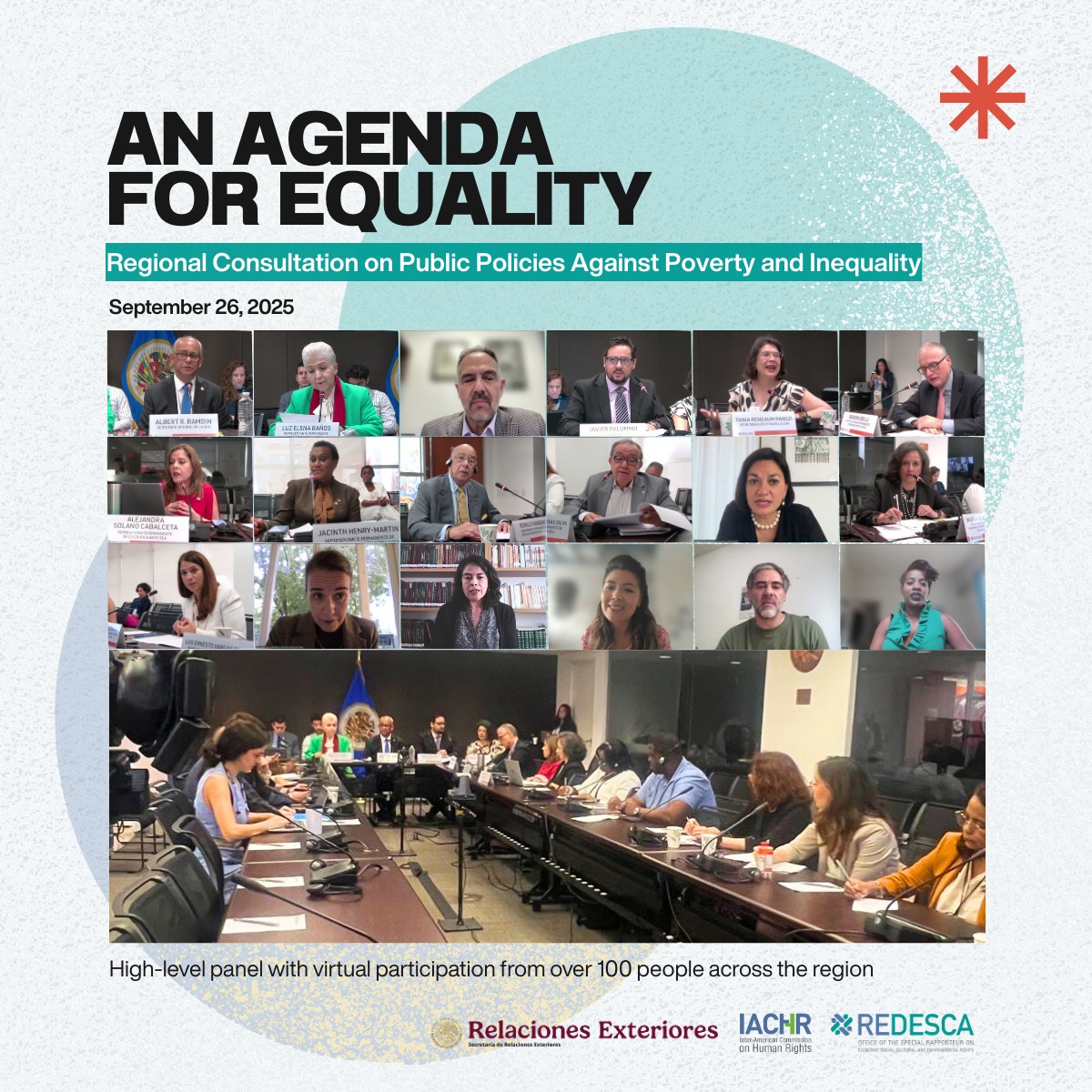
Washington DC, September 29, 2025 – Ambassador Jacinth Henry-Martin, Permanent Representative of Saint Kitts and Nevis to the Organization of American States (OAS), delivered a powerful intervention at the Regional Consultation on Public Policies Against Poverty and Inequality, held under the auspices of the Inter-American Commission on Human Rights.
Speaking on Panel 2, An Agenda for Equality: Specific Challenges in terms of Poverty, Public Debt, and Climate Change, Ambassador Henry-Martin underscored the lived realities of these intersecting challenges for Small Island Developing States (SIDS), and highlighted how Saint Kitts and Nevis has crafted integrated responses that place sustainability, resilience, and social protection at the center of national policy.
Citing national statistics, the Ambassador noted that 31 percent of children in Saint Kitts and Nevis live in poverty, with female-headed households bearing the greatest burden. To address these inequities, the Government has implemented robust safety nets such as the Poverty Alleviation Program (PAP), the Youth Empowerment through Skills (YES), and the Skills Training Empowerment Program (STEP), while advancing steps toward universal healthcare.
On the matter of public debt, Ambassador Henry-Martin recalled that Saint Kitts and Nevis was once among the most indebted countries in the world, with debt levels exceeding 150 percent of GDP. Through comprehensive debt restructuring (2011–2012), strict fiscal discipline, and prudent use of revenues from the Citizenship by Investment (CBI) Program, the country became the first in the Eastern Caribbean Currency Union (ECCU) to achieve the regional debt-to-GDP target of 60 percent ahead of schedule.
Turning to climate change, described as the “defining threat multiplier,” the Ambassador highlighted the nation’s ambitious agenda:
-
Investments in solar, wind, and geothermal energy to achieve 100 percent renewable energy;
-
Strengthening coastal defenses and mangrove restoration;
-
Enhancing early warning systems; and
-
Participation in regional mechanisms such as the Caribbean Catastrophe Risk Insurance Facility (CCRIF).
These policies converge in the Sustainable Island State Agenda 2030, launched by the Government of Saint Kitts and Nevis. Its pillars, food security, green energy, economic diversification, creative industries, social protection, and climate resilience, are designed to ensure that sustainability is embedded in every sector of national development.
“The challenges of poverty, debt, and climate change are not sequential; they are simultaneous, interwoven, and mutually reinforcing,” Ambassador Henry-Martin stated. “Yet through vision and policy, States such as Saint Kitts and Nevis are laying the foundation for a future defined not by fragility but by sustainability.”
The Ambassador concluded with a call for equity in global finance, fulfillment of climate finance commitments, and stronger international cooperation, noting that if small states with limited resources such as Saint Kitts and Nevis can reimagine themselves as fully sustainable, then the wider hemisphere and the world must also rise to the challenge.
-END-
